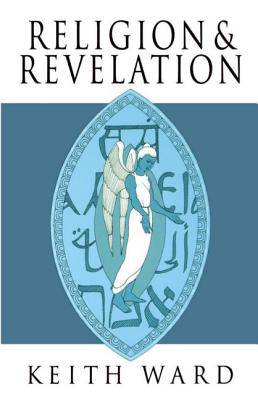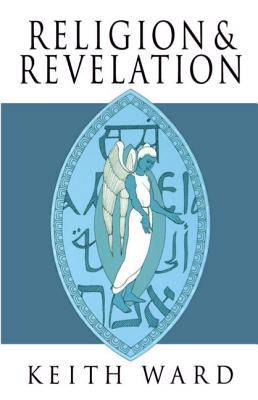
Door een staking bij bpost kan je online bestelling op dit moment iets langer onderweg zijn dan voorzien. Dringend iets nodig? Onze winkels ontvangen jou met open armen!
- Afhalen na 1 uur in een winkel met voorraad
- Gratis thuislevering in België vanaf € 30
- Ruim aanbod met 7 miljoen producten
Door een staking bij bpost kan je online bestelling op dit moment iets langer onderweg zijn dan voorzien. Dringend iets nodig? Onze winkels ontvangen jou met open armen!
- Afhalen na 1 uur in een winkel met voorraad
- Gratis thuislevering in België vanaf € 30
- Ruim aanbod met 7 miljoen producten
Zoeken
Religion & Revelation
A Theology of Revelation in the World's Religions
Keith Ward
Paperback | Engels
€ 103,45
+ 206 punten
Omschrijving
Since Thomas Aquinas first defined theology as revelation--or the rational elucidation of revealed truth--the idea has played a fundamental role in the history of Western theology. This book provides a new and detailed investigation of the concept, examining its nature, sources, and limitations in all five of the major scriptural religions of the world: Christianity, Judaism, Islam, Hinduism, and Buddhism.
Beginning with an examination of the nature of theology, Keith Ward looks at religion in its early historical manifestations, and considers the idea of revelation as found in the great canonical traditions of the religions of the world. In the process, he develops a distinctly Christian idea of revelation as divine self-expression in history. Finally, he explores how conceptions of revelation must be revised in light of modern historical and scientific thought, and proposes a new and positive theology of revelation for the future.
Religion and Revelation includes discussions of the work of most major theologians including Aquinas, Tillich, Barth, Temple, Frazer, and Evans Pritchard. It should be of interest to scholars and students of comparative religion, philosophers of religion, theologians, and anthropologists.
Beginning with an examination of the nature of theology, Keith Ward looks at religion in its early historical manifestations, and considers the idea of revelation as found in the great canonical traditions of the religions of the world. In the process, he develops a distinctly Christian idea of revelation as divine self-expression in history. Finally, he explores how conceptions of revelation must be revised in light of modern historical and scientific thought, and proposes a new and positive theology of revelation for the future.
Religion and Revelation includes discussions of the work of most major theologians including Aquinas, Tillich, Barth, Temple, Frazer, and Evans Pritchard. It should be of interest to scholars and students of comparative religion, philosophers of religion, theologians, and anthropologists.
Specificaties
Betrokkenen
- Auteur(s):
- Uitgeverij:
Inhoud
- Aantal bladzijden:
- 358
- Taal:
- Engels
Eigenschappen
- Productcode (EAN):
- 9780198263753
- Verschijningsdatum:
- 17/11/1994
- Uitvoering:
- Paperback
- Formaat:
- Trade paperback (VS)
- Afmetingen:
- 138 mm x 216 mm
- Gewicht:
- 526 g

Alleen bij Standaard Boekhandel
+ 206 punten op je klantenkaart van Standaard Boekhandel
Beoordelingen
We publiceren alleen reviews die voldoen aan de voorwaarden voor reviews. Bekijk onze voorwaarden voor reviews.











